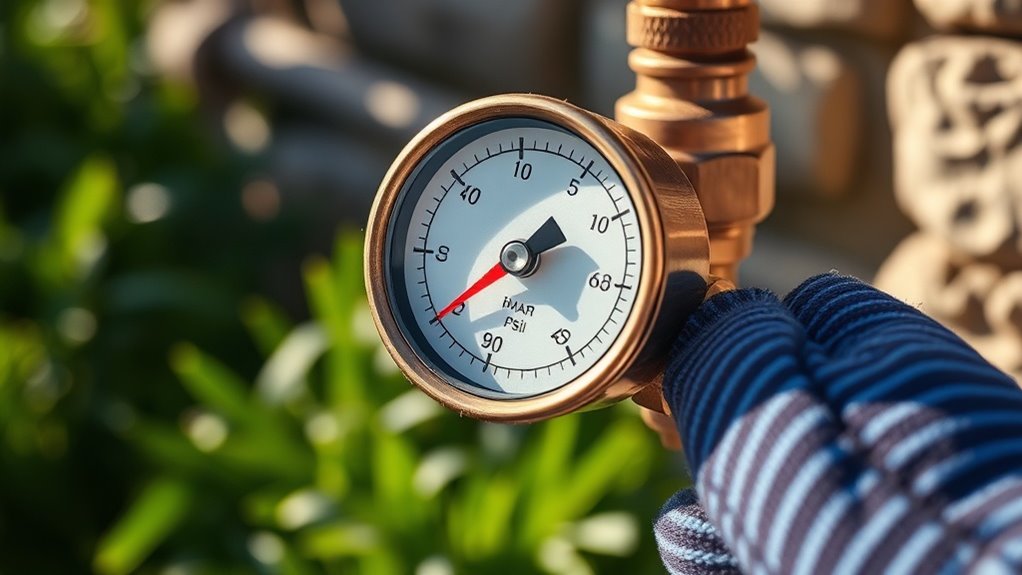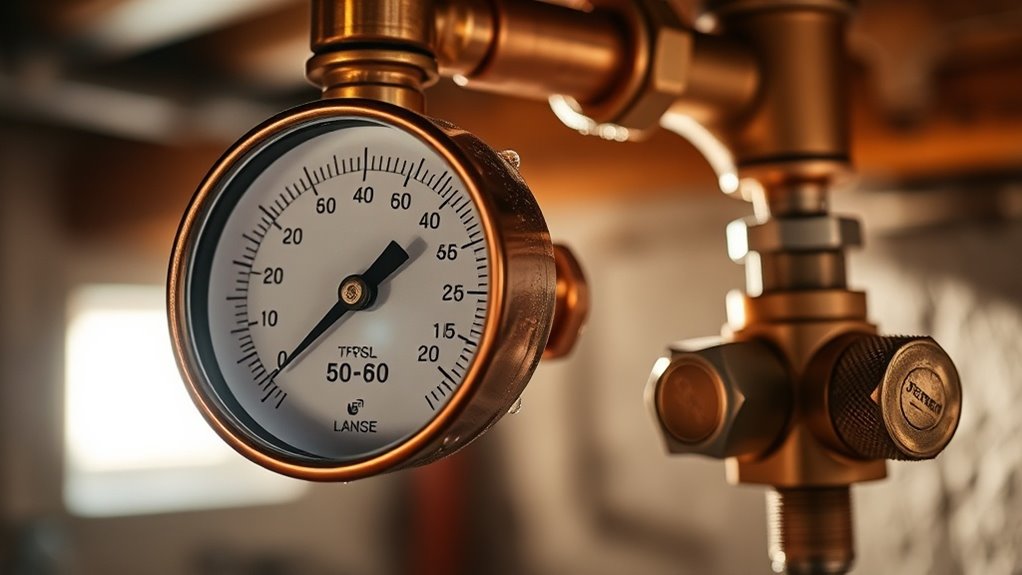Table of Contents
What Every Bucks County Homeowner Should Know About Water Pressure
Bucks County homeowners should maintain water pressure between 40-60 PSI for optimal plumbing performance. We’ve found that pressure too high (above 80 PSI) can damage pipes, fixtures, water heaters, washing machines, and dishwashers, while too low (under 40 PSI) affects daily tasks like showering, operating sprinkler systems, and filling bathtubs. Check your pressure using a gauge on your outdoor spigot, and adjust your pressure reducing valve or pressure regulator if needed. Seasonal changes, municipal water supply variations, well pump issues, and aging pipes commonly affect water flow throughout Pennsylvania. Understanding these basics will save you from unexpected plumbing headaches, costly repairs, and water waste. Local plumbers, the Bucks County Water Authority, and Pennsylvania American Water can provide assistance with persistent pressure problems.
How to Measure Your Home’s Water Pressure Accurately

Pressure gauges in hand, many Bucks County homeowners remain unaware of their water pressure regulators, water meters, and municipal supply line’s true performance.
We’ve seen countless families frustrated by low water pressure without understanding the root cause in their plumbing system.
To get an accurate reading, connect a pressure gauge directly to an outdoor hose bibb or spigot nearest your water main entry point. Make sure it’s sealed tightly with plumber’s tape to prevent leaks that could affect your results. The ideal range falls between 40-60 PSI—anything above 80 PSI signals potential pipe stress, water hammer, or fixture damage problems.
Don’t stop at one measurement! We recommend checking both kitchen faucets, bathroom fixtures, and outdoor spigots at different times of day, especially during peak usage hours.
Notice fluctuations? Your pressure reducing valve, backflow preventer, or municipal supply might need adjustment. Remember to recheck pressure after any modifications to ensure consistent water flow throughout your plumbing fixtures, appliances, and irrigation systems.
Understanding the Ideal PSI Range for Bucks County Homes

Why do so many Bucks County residents overlook the crucial balance of water pressure until something goes wrong?
We’ve seen countless homeowners struggle with damaged water lines, hot water heater failures, burst pipes, leaking faucets, and ruined appliances that could have been prevented with basic pressure knowledge.
In our community, water pressure isn’t just a comfort issue—it’s about protecting your home’s plumbing system.
Local water infrastructure has specific requirements that every resident should understand:
- 40-60 PSI – The sweet spot for Bucks County homes, providing sufficient flow without strain.
- Above 80 PSI – Danger zone that accelerates wear on fixtures, pipes, washing machines, dishwashers, and water heaters.
- Below 40 PSI – May indicate
